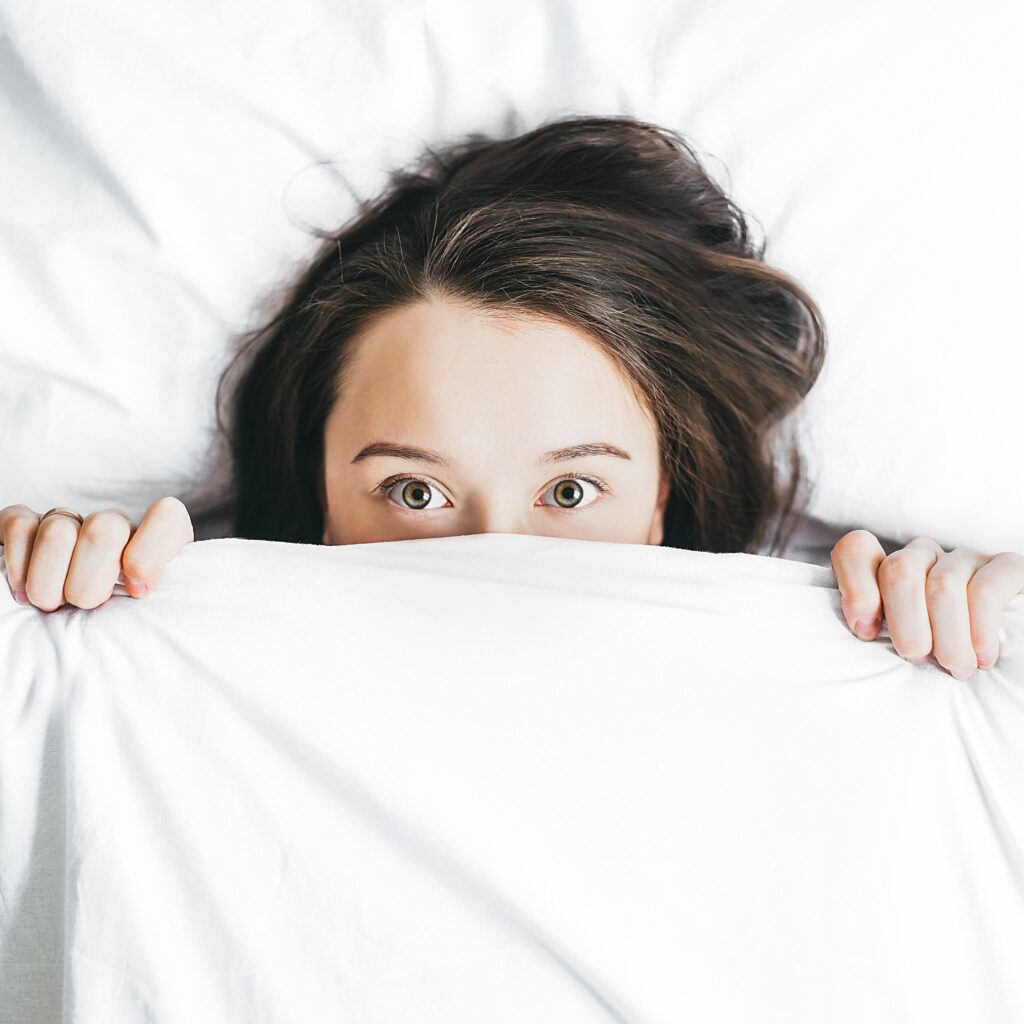The importance of sleep health is indisputable, yet many individuals voluntarily delay their bedtime, a phenomenon known as sleep procrastination.
Understanding this prevalent behavior is essential for our physical and mental wellbeing. In this comprehensive guide, we delve into the causes of sleep procrastination, also known as revenge bedtime procrastination, and provide practical strategies to overcome it.
Understanding Sleep Procrastination
Sleep procrastination, also known as sleep delay, is the habit of putting off going to bed at the intended time.
Despite feeling tired, individuals may continue to engage in unnecessary activities like browsing the internet, binge-watching shows, or even doing chores.
Recognizing sleep procrastination is the first step towards overcoming it.
Causes of Sleep Procrastination
Psychological Causes
Revenge bedtime procrastination often stems from psychological factors.
Stress and anxiety can create a mental barrier to sleep, transforming bedtime into a period of solitude where worries and fears manifest.
Behavioral factors, like a lack of self-regulation or discipline, also contribute to bed procrastination.
Technological Causes
Our digital devices are a significant culprit behind bedtime procrastination.
The constant barrage of emails, social media updates, and engaging content keeps us hooked to our screens.
Moreover, the blue light emitted from these devices can disrupt our circadian rhythm, making it harder to fall asleep and cause bed procrastination.
Environmental Factors
An unsupportive sleep environment, such as a noisy bedroom or an uncomfortable mattress, can deter individuals from sleeping on time.
Poor lifestyle choices, including heavy meals before bedtime or high caffeine intake, can also induce sleep procrastination.
The Science Behind Sleep Procrastination
Our internal body clock or circadian rhythm regulates our sleep-wake cycle.
Revenge bedtime procrastination can disrupt this rhythm, leading to disorders such as insomnia or delayed sleep phase syndrome.
Understanding this science helps highlight the gravity of the situation and the need to address it promptly.
Impact of Sleep Procrastination
Impact of Sleep Delay on Health
The effects of sleep procrastination are severe and can lead to sleep deprivation, which has significant implications for health.
Regularly delaying sleep increases the risk of physical health issues such as obesity, diabetes, and cardiovascular disease.
Moreover, it has detrimental effects on mental health, exacerbating stress, anxiety, and depression.
Daily Life Negative Consequences
Sleep procrastination can hamper daily life and have negative effects. Lack of sleep impairs cognition, reducing productivity and performance at work or school.
It also influences mood, leading to irritability and strained social interactions.
How to Stop Revenge Bedtime Procrastination
Preventing bedtime delay, also known as sleep procrastination, requires proactive measures and consistent efforts.
Here are some practical tips to prevent bedtime delay, that might be best for overcoming bedtime procrastination and ensure an adequate number of hours of sleep:
Improving Sleep Hygiene
Improving sleep hygiene is vital for combating sleep procrastination.
Establishing a consistent sleep schedule and creating a conducive sleep environment, including a comfortable mattress, appropriate room temperature, and minimal light and noise, can promote quality sleep.
Set a Consistent Sleep Schedule
Establish a regular sleep schedule by going to bed and waking up at the same time every day, even on weekends.
Consistency helps regulate your body’s internal clock, and creating good sleep habits, making it easier to fall asleep and wake up naturally.
Create a Relaxing Bedtime Routine
Develop a calming pre-bedtime routine that signals your body it’s time to wind down. Engage in activities like reading a book, taking a warm bath, or practicing relaxation techniques such as deep breathing or meditation.
These practices can help relax your mind and body, facilitating improved sleep quality.
Minimize Screen Time Before Bed
The blue light emitted by electronic devices can disrupt your sleep-wake cycle. Avoid using smartphones, tablets, or computers at least one hour before bed.
If necessary, use apps or settings that reduce blue light exposure or wear blue light-blocking glasses.
Limit Stimulants
Reduce your consumption of stimulants, such as caffeine and nicotine, especially in the afternoon and evening.
These substances can interfere with your ability to fall asleep and stay asleep, and cause bed procrastination.
Incorporate Physical Activity
Engaging in regular physical exercise can promote better sleep. Aim for at least 30 minutes of moderate-intensity exercise most days of the week.
However, avoid exercising too close to bedtime as it may energize you and make it harder to fall asleep.
Manage Stress and Anxiety
Practice stress-management techniques, such as journaling, talking to a trusted friend or therapist, or mindfulness for sleep improvement.
Addressing and managing stress and anxiety can help alleviate bedtime worries and promote relaxation.
Avoid Heavy Meals Before Bed
Eating a heavy meal close to bedtime can disrupt your digestion and cause discomfort, making it difficult to fall asleep.
Opt for lighter, balanced meals and avoid large amounts of food or beverages close to bedtime to avoid bed procrastination.
Professional Help
Professional help may be necessary for severe cases of sleep procrastination.
Sleep therapists and psychologists can provide strategies like Cognitive Behavioral Therapy for Insomnia (CBT-I) to improve sleep habits and prevent sleep disorders. Medications, under a healthcare provider’s guidance, can also be considered.
Technology And Sleep Procrastination
Technology, while a cause of sleep procrastination, can also be part of the solution. Sleep tracking apps provide insights into your sleep patterns, while alarm apps can help maintain a regular sleep schedule.
Apps offering blue light filters can also reduce the impact of screen time on sleep.
Utilizing Relaxation Techniques
Progressive Muscle Relaxation
Engage in progressive muscle relaxation techniques to release tension and promote relaxation before bed.
Start by tensing and then relaxing each muscle group in your body, working from your toes up to your head.
This practice can help alleviate physical and mental stress, preparing your body for a more restful sleep.
Deep Breathing Exercises
Practice deep breathing exercises to calm your mind and induce a state of relaxation. Focus on taking slow, deep breaths in through your nose and exhaling gently through your mouth.
This technique activates the body’s relaxation response, easing you into a more peaceful and tranquil state before sleep.
Natural Remedies to Enhance Sleep
In addition to the strategies mentioned earlier, certain natural remedies can further enhance sleep quality and combat sleep procrastination, particularly in individuals with night owl syndrome.
Herbal Tea
Sip on a cup of herbal tea before bedtime, such as chamomile or lavender tea. These teas contain compounds known for their calming and sleep-inducing properties.
Aromatherapy
Try using essential oils like lavender or bergamot, known for their relaxing effects. Diffuse the oil or add a few drops to your pillow to create a soothing ambiance in your bedroom.
Relaxing Music or White Noise
Listening to gentle, calming music or white noise can help create a peaceful atmosphere and drown out any disruptive sounds, promoting better sleep.
Natural Supplements
Consult with a healthcare professional about the use of natural supplements like melatonin or valerian root, which can help regulate sleep-wake cycles and promote relaxation.
Sleep Procrastination in Teens
Teen Sleep Patterns
Teens naturally experience a shift towards later bedtimes and waking times due to changes in their internal body clocks. This, combined with academic and social demands, contributes to bed procrastination.
Factors in Teen Sleep Procrastination
Academic pressures, extracurricular activities, social engagements, and technology influence sleep procrastination in teens. Hormonal changes during adolescence can also affect sleep quality and disrupt consistent sleep schedules.
Strategies for Teens
Educating teens about the importance of sleep, establishing consistent sleep schedules, and promoting effective time management skills can help address sleep procrastination in this age group.
Sleep Procrastination in Adults
Lifestyle and Work Factors
Demanding work schedules, family responsibilities, and lifestyle choices can contribute to sleep procrastination in adults. Stress and worries related to adult responsibilities can also play a role.
Addressing Adult Sleep Procrastination
Creating a conducive sleep environment, practicing relaxation techniques, and implementing time management strategies can help adults prioritize and achieve restful sleep. Seeking support from partners, family members, or healthcare professionals can also be beneficial.
Case Studies and Research
Numerous studies by institutions like the American Academy of Sleep Medicine and the National Sleep Foundation highlight the prevalence and consequences of bed procrastination. These studies, along with real-life case studies, provide valuable insights into the practical implementation of the strategies discussed.
Conclusion
Revenge bedtime procrastination, though widespread, should not be taken lightly due to its serious implications on our health and daily life. Overcoming this habit requires understanding its causes and implementing effective strategies, which may involve personal changes, professional help, and even technological assistance.
Sleep Procrastination FAQ
What does revenge have to do with it?
– Revenge bedtime procrastination is a relatable behavior where people stay up late to compensate for a lack of leisure time during the daytime life. It’s not about seeking revenge directly, but rather a way to reclaim a sense of control and enjoy personal activities, even if it means sacrificing sleep in the process.
Who is most affected by bedtime procrastination?
– Bedtime procrastination can have a significant impact on individuals who find it challenging to prioritize self-care and relaxation. People with demanding lifestyles, heavy workloads, or high levels of stress may be more prone to experiencing the effects of bedtime procrastination, potentially leading to sleep deprivation and its associated consequences on their physical and mental health.
What behaviors are associated with bedtime procrastination?
– Behaviors associated with bed procrastination often involve delaying or avoiding going to bed despite feeling tired. This can include engaging in stimulating activities such as watching TV, scrolling through social media, playing video games, or getting absorbed in work tasks, all of which contribute to extending wakefulness and postponing sleep.




